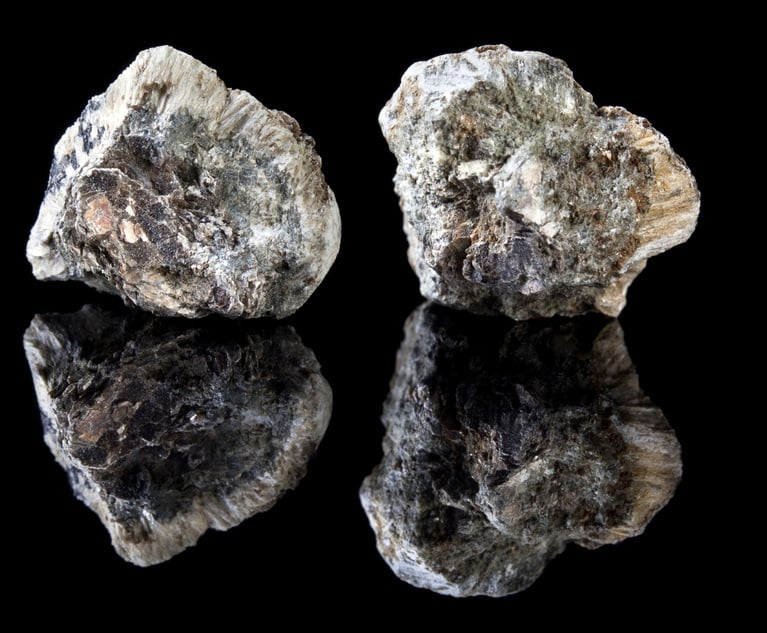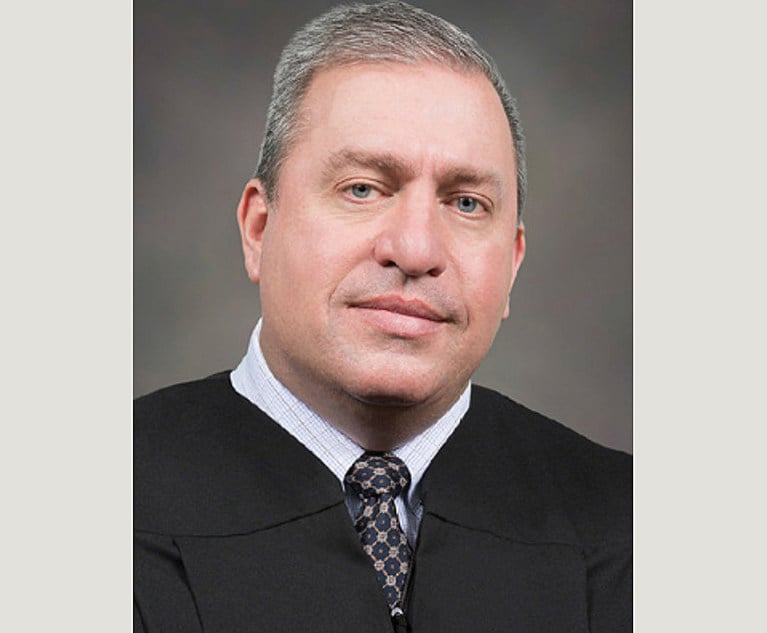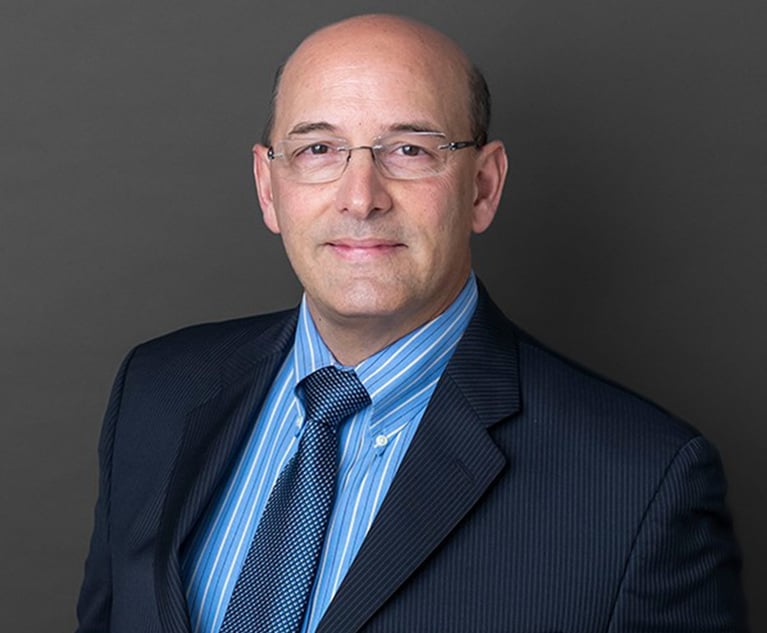 Photo: Shutterstock.
Photo: Shutterstock.Court: WCJ Has No Authority to Assess Reasonableness of 20% Counsel Fee
The ruling may provide guidance on attorney fee petitions for medical compensation awards in workers' compensation cases going forward.
May 14, 2020 at 05:00 PM
4 minute read
A divided Commonwealth Court en banc has ruled that a workers' compensation judge had no authority under the Workers' Compensation Act to evaluate whether a 20% counsel fee for a claimant's medical compensation award was reasonable.
In Neves v. Workers' Compensation Appeal Board (American Airlines), according to the Commonwealth Court's May 14 opinion, claimant Robert Neves filed a claim petition alleging that on Jan. 5, 2015, he suffered a work-related heart attack that damaged his heart muscle while he was employed by American Airlines. On May 3, 2016, Workers' Compensation Judge Joseph Stokes granted the claim petition and specifically found in his decision that Neves' attorney was entitled to "20% of any benefits awarded to be paid as counsel fees" under the fee agreement claimant signed.
American Airlines appealed to the Workers' Compensation Appeal Board and Neves cross-appealed, arguing that Stokes had miscalculated Neves' average weekly wage.
On Aug. 18, 2016, Neves filed a review petition and a penalty petition, alleging that his employer had refused to pay for medical treatment and withheld counsel fees. The case was assigned to WCJ Geoffrey Lawrence.
In support of his claim for attorney fees, Neves' counsel pointed to the fee agreement Neves signed, which stated that he agreed "to pay my attorney a sum equal to 20% of whatever may be recovered from said claim either by suit, settlement, or in any other manner or of whatever may be recovered if a second trial or appeal is taken."
Lawrence denied Neves' review petition, holding that his attorney was not entitled to a 20% attorney fee on Neves' medical compensation. Lawrence held that Neves' review petition was barred by the doctrine of res judicata because Neves did not appeal Stokes' order that his counsel was "entitled to 20% of the compensation benefits awarded as counsel fees payable from claimant's share of the award."
Lawrence held that Neves failed to establish that his counsel's fee was reasonable, relying on the Commonwealth Court's 1993 ruling in Piergalski v. Workmen's Compensation Appeal Board (Viviano Macaroni), which held that a contingent fee based upon an award of medical compensation will not be approved unless the fee is shown to be reasonable based on the amount and complexity of legal work involved.
Lawrence also ruled that, under 1993 amendments to the WCA, known as "Act 44," any fee award would only apply to the indemnity award and not the medical award.
The board affirmed Lawrence's ruling, agreeing that Neves needed to show that the fee was reasonable. The board based its decision on the Commonwealth Court's 2016 ruling in Righter v. Workers' Compensation Appeal Board (Righter Parking).
On appeal to the Commonwealth Court, Neves argued that a 20% counsel fee is per se reasonable under Section 442 of the WCA, regardless of whether the award is for disability or medical compensation.
Neves also argued that Act 44 had no bearing on the matter.
Commonwealth Court President Judge Mary Hannah Leavitt, writing for the majority, agreed.
"We hold that Section 442 does not distinguish between the type of compensation awarded; does not require an inquiry into the reasonableness of a 20% fee agreement; and does not make the amount and degree of difficulty of the work performed by the attorney relevant," Leavitt said. "A 20% counsel fee is per se reasonable."
Leavitt added that, "since its enactment, Section 442 has required the fact finder, now the WCJ, to approve a negotiated 20% counsel fee without regard to whether it applied to indemnity or medical compensation."
Leavitt was joined by Judges P. Kevin Brobson, Patricia McCullough, Anne Covey and Christine Fizzano Cannon.
Judge Michael Wojcik, joined by Judge Renee Cohn Jubelirer, penned a dissenting opinion.
"In accord with the humanitarian purpose of the act, we have consistently interpreted Section 442 as requiring a WCJ's approval of every agreement for attorney's fees, based on a determination of reasonableness," Wojcik wrote. "Always, we have been mindful that 'Section 442 evidences a legislative intent to protect claimants against unreasonable fees imposed upon them by their attorneys pursuant to improvident fee agreements.'"
Counsel for Neves, Joseph Prim Jr. of Prim Law Firm in Philadelphia, could not be reached for comment.
Counsel for American Airlines, Christian Stein of Rawle & Henderson in Pittsburgh, also could not be reached.
This content has been archived. It is available through our partners, LexisNexis® and Bloomberg Law.
To view this content, please continue to their sites.
Not a Lexis Subscriber?
Subscribe Now
Not a Bloomberg Law Subscriber?
Subscribe Now
NOT FOR REPRINT
© 2024 ALM Global, LLC, All Rights Reserved. Request academic re-use from www.copyright.com. All other uses, submit a request to [email protected]. For more information visit Asset & Logo Licensing.
You Might Like
View All
Pa. High Court to Weigh Parent Company's Liability for Dissolved Subsidiary's Conduct
3 minute read
Pa. Supreme Court Taps New Philadelphia Family Division Administrative Judge
3 minute read
People in the News—Nov. 27, 2024—Flaster Greenberg, Tucker Arensberg
3 minute read
Law Firms Mentioned
Trending Stories
Who Got The Work
Michael G. Bongiorno, Andrew Scott Dulberg and Elizabeth E. Driscoll from Wilmer Cutler Pickering Hale and Dorr have stepped in to represent Symbotic Inc., an A.I.-enabled technology platform that focuses on increasing supply chain efficiency, and other defendants in a pending shareholder derivative lawsuit. The case, filed Oct. 2 in Massachusetts District Court by the Brown Law Firm on behalf of Stephen Austen, accuses certain officers and directors of misleading investors in regard to Symbotic's potential for margin growth by failing to disclose that the company was not equipped to timely deploy its systems or manage expenses through project delays. The case, assigned to U.S. District Judge Nathaniel M. Gorton, is 1:24-cv-12522, Austen v. Cohen et al.
Who Got The Work
Edmund Polubinski and Marie Killmond of Davis Polk & Wardwell have entered appearances for data platform software development company MongoDB and other defendants in a pending shareholder derivative lawsuit. The action, filed Oct. 7 in New York Southern District Court by the Brown Law Firm, accuses the company's directors and/or officers of falsely expressing confidence in the company’s restructuring of its sales incentive plan and downplaying the severity of decreases in its upfront commitments. The case is 1:24-cv-07594, Roy v. Ittycheria et al.
Who Got The Work
Amy O. Bruchs and Kurt F. Ellison of Michael Best & Friedrich have entered appearances for Epic Systems Corp. in a pending employment discrimination lawsuit. The suit was filed Sept. 7 in Wisconsin Western District Court by Levine Eisberner LLC and Siri & Glimstad on behalf of a project manager who claims that he was wrongfully terminated after applying for a religious exemption to the defendant's COVID-19 vaccine mandate. The case, assigned to U.S. Magistrate Judge Anita Marie Boor, is 3:24-cv-00630, Secker, Nathan v. Epic Systems Corporation.
Who Got The Work
David X. Sullivan, Thomas J. Finn and Gregory A. Hall from McCarter & English have entered appearances for Sunrun Installation Services in a pending civil rights lawsuit. The complaint was filed Sept. 4 in Connecticut District Court by attorney Robert M. Berke on behalf of former employee George Edward Steins, who was arrested and charged with employing an unregistered home improvement salesperson. The complaint alleges that had Sunrun informed the Connecticut Department of Consumer Protection that the plaintiff's employment had ended in 2017 and that he no longer held Sunrun's home improvement contractor license, he would not have been hit with charges, which were dismissed in May 2024. The case, assigned to U.S. District Judge Jeffrey A. Meyer, is 3:24-cv-01423, Steins v. Sunrun, Inc. et al.
Who Got The Work
Greenberg Traurig shareholder Joshua L. Raskin has entered an appearance for boohoo.com UK Ltd. in a pending patent infringement lawsuit. The suit, filed Sept. 3 in Texas Eastern District Court by Rozier Hardt McDonough on behalf of Alto Dynamics, asserts five patents related to an online shopping platform. The case, assigned to U.S. District Judge Rodney Gilstrap, is 2:24-cv-00719, Alto Dynamics, LLC v. boohoo.com UK Limited.
Featured Firms
Law Offices of Gary Martin Hays & Associates, P.C.
(470) 294-1674
Law Offices of Mark E. Salomone
(857) 444-6468
Smith & Hassler
(713) 739-1250





